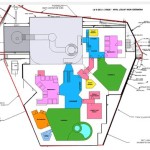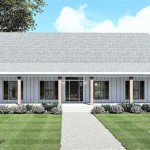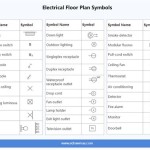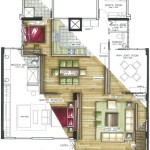House Plans Without Basements: Advantages and Considerations
When it comes to house design, the presence of a basement is often considered an essential feature. However, there are many advantages to opting for house plans without basements. This article explores the benefits of basement-free homes and provides valuable considerations for those contemplating this design choice.Advantages of House Plans Without Basements
1. Cost-Effectiveness: Eliminating a basement significantly reduces construction costs. Excavation, foundation work, and waterproofing expenses are eliminated, resulting in potential savings that can be allocated to other areas of the home. 2. Space Optimization: Without a basement, the entire footprint of the house is available for living space. This provides more flexibility in designing the layout and allows for larger rooms or additional amenities on the main level. 3. Simplified Construction: Building a house without a basement simplifies the construction process. The absence of excavation and foundation work reduces the overall construction timeline and potential delays associated with these processes. 4. Energy Efficiency: Basement-free homes tend to be more energy-efficient. Heat loss and air infiltration are minimized as there is no underground area to insulate and maintain. Additionally, the reduced surface area of the home results in lower heating and cooling costs. 5. Reduced Maintenance: Without a basement, homeowners can eliminate the maintenance and upkeep associated with this space. There is no need to worry about flooding, moisture issues, or expensive repairs related to basement problems.Considerations for House Plans Without Basements
1. Storage Space: One potential drawback of a basement-free home is the lack of storage space. However, this can be addressed by incorporating clever storage solutions throughout the house, such as built-in cabinets, attic space, and outdoor sheds. 2. Natural Light: Homes without basements may have fewer windows and less natural light on the lower levels. Careful planning is required to ensure that living spaces have adequate natural light, potentially through larger windows, skylights, or light wells. 3. Potential for Flooding: In areas prone to flooding, homes without basements may be more susceptible to water damage. Proper drainage systems and flood mitigation measures should be considered during the design and construction process. 4. Resale Value: In some markets, homes with basements may have a higher resale value compared to those without. However, this can vary depending on regional preferences and individual buyer needs. Choosing a house plan without a basement can provide significant advantages in terms of cost-effectiveness, space optimization, and simplified construction. By carefully considering storage space, natural light, flood mitigation, and potential resale value, homeowners can make an informed decision that suits their needs and preferences. Whether opting for a basement-free home or a traditional design with a basement, the ultimate goal is to create a comfortable and functional living space that meets the unique requirements of the occupants.
25 House Plans No Basement Ideas In 2024 Floor

Affordable House Plans 800 To 999 Sq Ft Drummond

Traditional House Plan With Craftsman Details Ranch Plans New Small

Four Bedroom Home Design With Office Plan 4968

Single Level House Plans Without Garage Drummondhouseplans

Walkout Basement House Plans With Photos From Don Gardner Houseplans Blog Com

Pin On Interior Design Ideas

Pin On House Ideas Modular

Basement House Plans Next Level Homes

Walkout Basement House Plans Farmhouse Hillside








